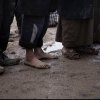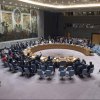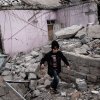
UK official: Iraq veterans may face prosecution for war crimes
UK official: Iraq veterans may face prosecution...
Mark Warwick, a former police detective and the head of IHAT, stated [BBC report] that some of the allegations being investigated included murder. According to the investigation, there may be as many 1,515 victims, 280 of whom are alleged to have been unlawfully killed. Despite assurances from IHAT, however, Public Interest Lawyers [firm website], representing some of the alleged victims, said IHAT is not doing an effective job investigating those responsible for "systemic" abuse. They state that "Despite public inquires, court proceedings ongoing since 2004 and the IHAT team of investigators, there is yet to be a single prosecution resulting from IHAT's work." Carla Ferstman, director of the human rights charity Redress [advocacy website], echoed these comments, stating that the the "incredibly slow pace" of IHAT's investigations was "wholly unacceptable." However, Dr. Andrew Williams, from the University of Warwick [official website], said the investigations could take a long time. He pointed to the difficulty of obtaining witness testimony from civilians in Iraq. According to Williams, the mere process of finding witnesses and interviewing them is a long process and will be logistically difficult.
The controversy over the nature of investigations concerning allegations of abuse and crime during the Iraq war has been prevalent for some time now in the UK. In July 2010 UK Prime Minister David Cameron announced that he would create a panel [JURIST report] to investigate claims that British government agents were complicit in the torture of terrorism suspects held overseas. In November 2011 a UK appeals court ruled [judgment] that a special commission charged with investigating the alleged abuse [JURIST report] of Iraqi civilians in British-controlled detention facilities between March 2003 and December 2008 lacked independence. In that case the Court of Appeals ordered then Defence Secretary Liam Fox to reconsider his refusal to open a single public inquiry into allegations of UK military abuse. The Court of Appeals also found that the existing inquiries into the abuse allegations fail to meet the requirements of Article 3 of the European Convention on Human Rights [text] which protects against inhumane treatment.
 Reload
Reload



